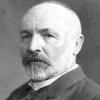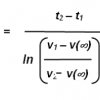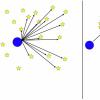Part Two of a Five-Part Series on Heart Health
“Epidemiological, experimental and clinical studies suggest that magnesium deficiency (i.e., hypomagnesemia) plays a role in the pathogenesis of hypertension.”
...
“One of the better studied supplements for maintaining blood pressure already within the normal range is CoQ10,” she says. The ubiquinol form of CoQ10 has been found, at potencies of 100–200 mg per day, to counteract the oxidative stress that can constrict blood vessels, reduce nitric oxide levels, and thus elevate blood pressure.
...
Murray’s Encyclopedia details the benefits of arginine for blood pressure. This amino acid plays a key role in nitric oxide production, and may produce meaningful decreases in systolic blood pressure, particularly, research suggests, in younger people with hypertension.
...
“Several clinical studies using aged garlic extract (AGE) have been shown to reduce multiple risk factors of heart disease, including elevated blood pressure, cholesterol, homocysteine and atherosclerosis...”
...
Nattokinase is an enzyme derived from fermented soybeans that brings blood-thinning capabilities to the table. In the mid-1990s, Levy says, Japanese researchers at Miyazaki Medical College and Kurashiki University looked into nattokinase’s effect on blood pressure. Their experiments revealed that nattokinase naturally inhibits ACE, kicking out one leg of the renin/angiotensin/aldosterone system that can elevate blood pressure when over-stimulated.
...
“Certain herbs,” Levy also notes, “such as hawthorn berry and cayenne pepper have been shown to benefit circulation.”
...
“Mild” herbs with blood pressure-lowering effects include ju hua or Chinese chrysanthemum flower, motherwort, linden flower (suitable for tea) and hibiscus (another tea herb)... Eucommia bark and Dan shen (Salvia miltiorrhiza), both Chinese herbs, are also good for blood pressure, according to Winston.
...
In addition, others such as parsley leaf, celery seed and golden rod provide the same fluid-reducing benefits, and work well in combination with herbs that affect blood pressure more directly, according to Winston. Pande adds that decaffeinated green tea is an effective aid for blood pressure, as are guggulipid, policosanol and tulsi.
...
Four supplements are at the top of Bowden’s list for supporting blood pressure in a healthy range, and omega-3s, cocoa flavanols (more on these in a moment) and magnesium are the first three. “Fourth is a newcomer to the list, which has been shown in some very good research to be effective at lowering blood pressure: olive leaf complex,” he says. Olive leaf is included among the “strong” herbs that Winston cites.
...
In what the researchers classified as short-term trials, a median vitamin C dose of 500 mg/day resulted in significant blood pressure reductions, with slightly larger reductions in hypertensive subjects... blood pressure levels studied here were only “minimally reduced” by vitamin C .
...
lycopene and protein now appear to hold promise for HBP sufferers, according to Sugraek MacDonald. Lycopene was identified in a review of intervention trials to significantly reduce systolic blood pressure at doses of over 25 mg daily.
...
"... After taking Pycnogenol for eight weeks, patients’ endothelial function improved significantly”
...
























































